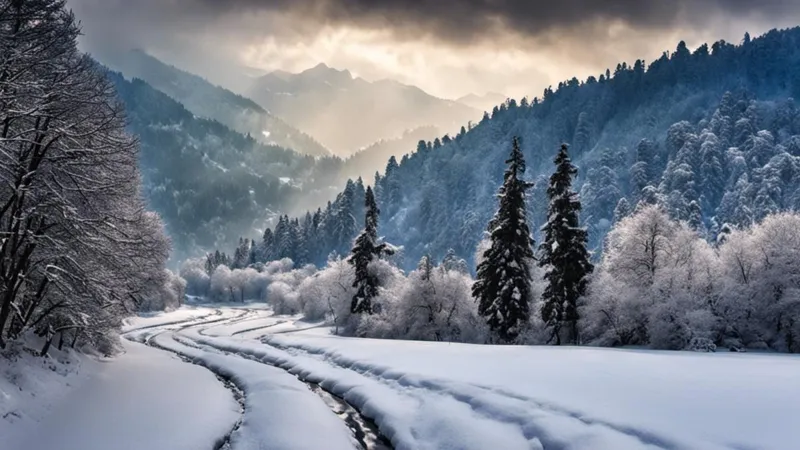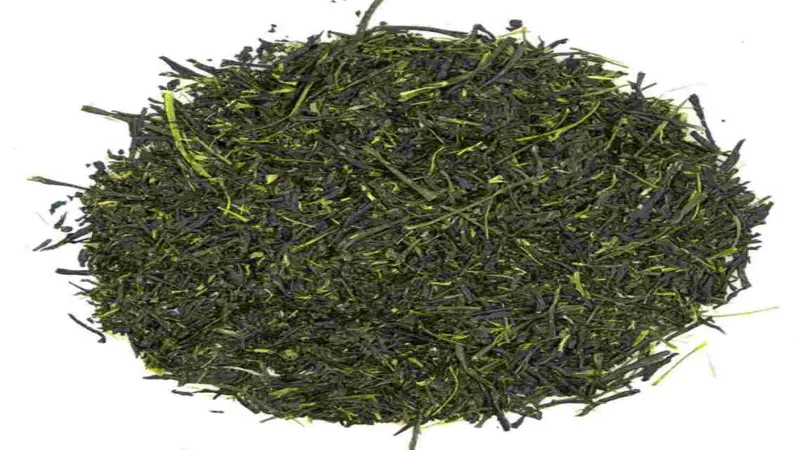As the winter season unfolds in Kashmir, the region, renowned for its breathtaking snow-covered landscapes and thriving tourism, faces an unprecedented crisis. This year, poor snowfall has not only dampened the spirits of winter tourists but has also cast a shadow over the essential agricultural sector, particularly apple production, vital to the local economy. With the winter halfway through and snow levels alarmingly low, the repercussions are felt deeply across both tourism and horticulture, leading to a tumultuous period for the livelihoods of many. The ongoing climate changes present a stark reminder of the vulnerabilities facing this enchanting region, as it grapples with the far-reaching impacts of its vanishing winter.
| Category | Details |
|---|---|
| Impact on Tourism | Kashmir’s tourism industry is suffering due to low snowfall, with hotel occupancy in Gulmarg dropping to 20% from the usual 60-70%. Local businesses are facing massive revenue losses. |
| Key Tourist Area | Gulmarg is a top winter destination known for skiing and beautiful landscapes. |
| Tourist Preferences | Fewer tourists are visiting Kashmir as they opt for destinations with reliable snowfall. |
| Local Business Impact | Hoteliers and local businesses report significant cancellations and revenue loss due to reduced tourist numbers. |
| Impact on Agriculture | Poor snowfall has adversely affected agriculture, especially apple production, which is critical for the local economy. |
| Water Supply Issues | Reduced snowfall means less snowmelt, leading to shrinking rivers and lakes, causing irrigation shortages. |
| Apple Crop Challenges | Apple trees require sufficient snowmelt, and the current lack of it is resulting in lower yields and higher prices. |
| Economic Dependency | Kashmir’s economy heavily relies on tourism and horticulture, both of which are facing severe setbacks this year. |
| Climate Change Effects | Experts attribute the reduced snowfall to climate change, resulting in erratic weather patterns. |
| Long-term Concerns | The ongoing lack of snowfall poses long-term risks to Kashmir’s reputation and economic stability. |
The Importance of Snowfall in Kashmir
Snowfall is vital for Kashmir’s ecosystem, supporting both agriculture and tourism. Each winter, the heavy snow not only creates beautiful landscapes but also provides essential water for crops when it melts in spring. Farmers depend on this meltwater to sustain their apple orchards and other crops, while tourists flock to the region to enjoy winter sports and the stunning snow-covered scenery. Without adequate snowfall, both sectors face significant challenges.
In addition to its economic importance, snowfall also plays a crucial role in Kashmir’s cultural identity. The region is known for its breathtaking winter vistas and traditional winter activities, which attract visitors from around the world. The snow-capped mountains and serene landscapes make Kashmir a popular destination for skiing and snowboarding. A decline in snowfall threatens to erase this unique aspect of the region, altering its charm and appeal.
Impact on Tourism: The Case of Gulmarg
Gulmarg, one of Kashmir’s most popular winter destinations, is feeling the brunt of poor snowfall this season. Normally bustling with tourists eager to hit the slopes, the town has seen hotel occupancy drop to just 20%. This drastic decline is a stark contrast to the usual 60-70% occupancy in previous years, leaving local businesses struggling to survive. Tour operators and shop owners report significant revenue losses as they adapt to the changing landscape.
The diminishing snowfall has led many potential visitors to choose other destinations where snow is more reliable. This shift not only affects the income of local hoteliers but also the entire ecosystem of services that cater to tourists. Restaurants, shops, and transportation services that thrive on the influx of winter visitors are now facing tough times, highlighting the interconnectedness of the tourism industry in Kashmir.
Agricultural Challenges: The Apple Industry
The apple industry in Kashmir is particularly vulnerable to the effects of reduced snowfall. Apple trees rely on the snowmelt to receive the necessary moisture for healthy growth. Without sufficient snow, the rivers and groundwater levels are declining, leading to irrigation shortages. As a result, farmers are worried about lower yields and smaller fruits, which can affect their income and the overall apple supply in India.
Farmers like Khursheed Ahmad express deep concern over the unusual weather patterns this year. With the critical winter months lacking snow, he fears for the future of his apple crops. The lack of chill affects the blooming cycle of the trees, potentially leading to reduced quality and quantity of the harvest. This not only impacts individual farmers but also the broader economy, as Kashmir is responsible for a significant portion of India’s apple production.
Water Crisis: The Drying Wells
The effects of poor snowfall extend beyond agriculture and tourism; many communities in Kashmir are facing a severe drinking water crisis. As snowfall diminishes, underground water sources like wells and borewells are not replenished, leading to dry taps in several villages. This situation poses a serious threat to the health and well-being of residents who depend on these sources for their daily water needs.
Experts attribute the reduced snowfall to climate change, which disrupts weather patterns and creates unpredictable conditions. As the world warms, Kashmir’s once-reliable winter is becoming less certain, making it difficult for communities to plan for their water needs. This crisis highlights the urgent need for sustainable water management practices to protect both drinking water supplies and agricultural irrigation.
Long-Term Economic Implications
The ongoing decline in snowfall is not just a seasonal issue; it poses long-term economic threats to Kashmir. With tourism and agriculture intertwined, the impact of losing winter tourism could lead to a significant downturn in local economies. As businesses shutter their doors and unemployment rises, the region faces the risk of a permanent decline in its prized reputation as a winter wonderland.
Moreover, the challenges facing the apple industry and other agricultural sectors could have ripple effects throughout the entire economy. Farmers struggling with reduced yields may have to raise prices, impacting consumers and decreasing overall demand. If these trends continue, Kashmir could find itself in a precarious economic position, necessitating urgent action to adapt to the changing climate and preserve its livelihoods.
Hope for the Future: Adaptation Strategies
Despite the challenges posed by poor snowfall, there is hope for the future through adaptation strategies. Farmers and local businesses can explore innovative practices to manage water resources more efficiently, ensuring crops receive adequate hydration even during dry spells. Additionally, promoting alternative winter activities that do not solely depend on snow may help sustain tourism.
Community efforts to raise awareness about climate change and its impacts are essential for fostering resilience. By working together, local leaders and residents can advocate for sustainable practices that protect both tourism and agriculture. Investing in research and education will empower Kashmir to adapt to these changes, securing a brighter future for its economy and way of life.
Frequently Asked Questions
Why is Kashmir’s tourism industry struggling this winter?
Kashmir’s tourism is suffering due to poor snowfall, with hotel occupancy in Gulmarg dropping to 20%, significantly affecting local businesses reliant on winter visitors.
How does lack of snow affect agriculture in Kashmir?
Without adequate snowfall, essential snowmelt for irrigation is lacking, which harms apple production and other crops, leading to reduced yields and farmer income.
What are the long-term impacts of climate change on Kashmir’s economy?
Climate change is causing erratic snowfall patterns, threatening both tourism and agriculture, which could lead to permanent economic decline in Kashmir.
What specific crops are impacted by the reduced snowfall?
The apple crop is particularly affected, but other crops like rice and saffron are also struggling due to insufficient water supply from snowmelt.
How are local businesses coping with the decline in tourists?
Local businesses, including hotels and shops, are facing significant revenue losses and struggling to stay afloat due to reduced tourist arrivals.
What role does snowfall play in sustaining water sources in Kashmir?
Snowfall replenishes rivers and groundwater, ensuring a steady water supply for drinking and irrigation, vital for both agriculture and community needs.
What can be done to mitigate the impact of changing weather patterns?
Investing in sustainable agricultural practices and promoting alternative tourism can help buffer against the effects of climate change in Kashmir.
Summary
Kashmir is facing serious challenges this winter due to poor snowfall, which has severely impacted its tourism and agriculture sectors. With only 20% hotel occupancy in popular destinations like Gulmarg, local businesses reliant on winter tourism are struggling. Additionally, the lack of snow affects apple production, crucial for the region’s economy, leading to lower yields and increased prices. Farmers express concerns over water shortages, as melting snow is vital for irrigation. Climate change is causing unpredictable weather patterns, threatening both the livelihoods of locals and the overall economy of Kashmir.



